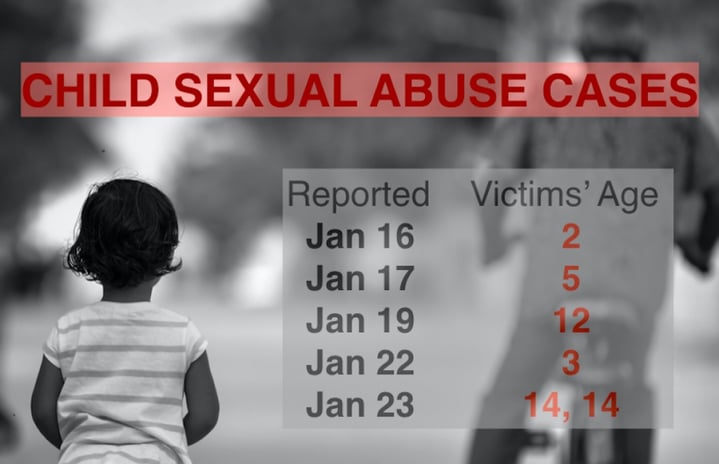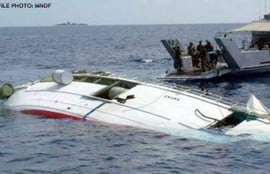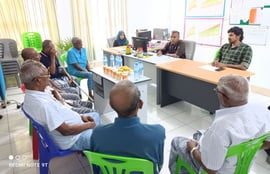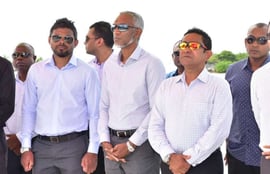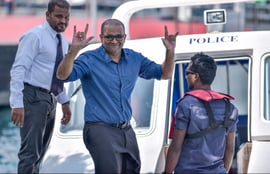The slew of child sexual abuse cases that came to light since mid-January shook the country to the core - however, for the average Maldivian, the righteous outrage in tandem with the crippling shame and heartbreak felt, is far from a novel experience.
Memories of previous cases, at least the tragically few that came so sharply to public attention, are not far off. As such, it does not take so much a genius as a quick, discerning glance at recent history to notice a distressing facet of child sexual abuse in Maldives:
A deplorable number of paedophiles walk free.
Presently, Exhibit A is the 82-year-old great-grandfather of the toddler from Kanduhulhudhoo, Gaafu Alif Atoll.
Ever since the police announced their investigation into the sexual abuse of the two-year-old victim on January 16, every piece of information unveiled was more appalling than the last. The final picture laid out before us, for now, was that she had been repeatedly sexually abused by both her paternal grandfather and great-grandfather. Although doctors have confirmed the sexual abuse, a broad term in itself, sources from the island claim that the child was raped.
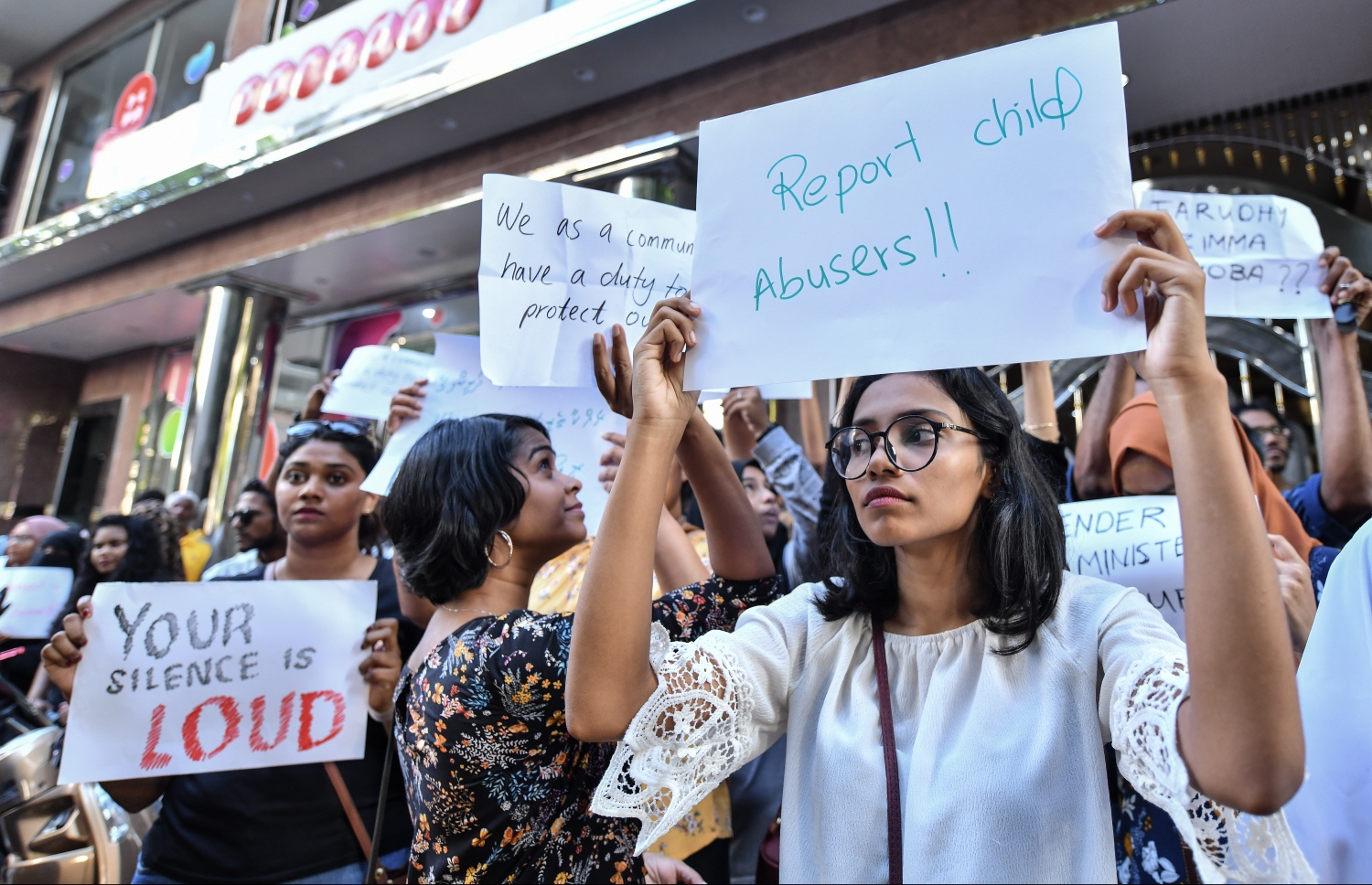
The case, which sparked outraged protests, is horrifying on every front. Substance abusing parents with criminal records; the father’s refusal to place the child with maternal relatives while her mother was in Male’; and allegations that the latter was sexually abused by her father-in-law as well.
As the police arrested the victim’s father, grandfather and great-grandfather amidst this quagmire of sickening circumstances, one of the most alarming that came to light is that the great-grandfather not only has a history of child sexual abuse, but was once prosecuted on these charges as well.
Which begs the worrying question:
Why, then, was he allowed to walk free until now?
On January 18, the authorities gave an even more troubling answer: because he was elderly.
In a joint press conference with the gender ministry, the police disclosed that the 82-year-old man was previously investigated on child sexual abuse charges in 2018, which proceeded all the way to prosecution, including a hearing held in June 2019. However, at the time, the suspect was not remanded or isolated from society in any manner, despite the weighty charge levied against him, out of consideration for his age.
This line of reasoning, ill-considered at best and outrageous at worst, smarts. The very idea that a sexual predator’s age, especially with sufficient evidence to warrant a trial, could possibly outweigh the safety of children on the authorities’ inept scales is inconceivable.
Subsequently, the possibility that his great-granddaughter, innocence lost at not even two years old, and countless other children could have been spared with their childhoods untainted, is further insult to injury.
Several residents from the island have come forward amidst the ongoing investigation, to share with local media past incidents of the elderly man making sexual advances on their children. Some of these accounts, dating back to 2017, paint disturbing pictures of him taking kids, some as young as three-years-old, to remote locations where he abused them, inviting children “to come to [his] room”, offering them money, and even flashing his genitals. A video filmed by one of his targets, which went viral on social media, allegedly depict the great-grandfather propositioning the young child for sex.
According to dejected parents, a number of these incidents were reported to authorities, but aside from taking their statements, little to no action was taken. The old man was released, facing no consequences except empty “advice” not to do it again.
The vice of corruption also appears to have its claws in, for Kanduhulhudhoo residents told local media that the island’s chief magistrate, Hassan Didi, was a nephew of the offender and had explicitly refused to pursue an allegation against his uncle. He is currently suspended and under investigation by the Judicial Service Commission (JSC), over a barrage of allegations including sexual harassment.
The convoluted realities unearthed over the past week indicate there is no denying the great-grandfather’s rampant history of child sexual abuse - and with a legal prosecution under his ‘mundu’, it also brings up the hair-raising question:
Why was he allowed to live under the same roof as his great-granddaughter in the first place?
Perhaps it is here that the authorities’ gross incompetence and reckless disregard for children’s safety are brought to sharpest effect. Despite the testimonies of the island people, the police stated that they received and investigated only one case of the man before. As for the gender ministry, in a disgraceful statement they claimed to have no prior knowledge of the danger the victim was in, until her abuse was reported on January 15.
How the very state institution charged with ensuring the welfare of children could have overlooked a child living with a man, who had been reported to authorities by multiple families and was prosecuted, is as beyond comprehension as the fact that this predator was never detained. Furthermore, the gender ministry refused to answer questions posed repeatedly by The Edition, as to whether there were plans to provide the victim with extended health care and counselling, and measures put in place to ensure such crimes do not repeat.
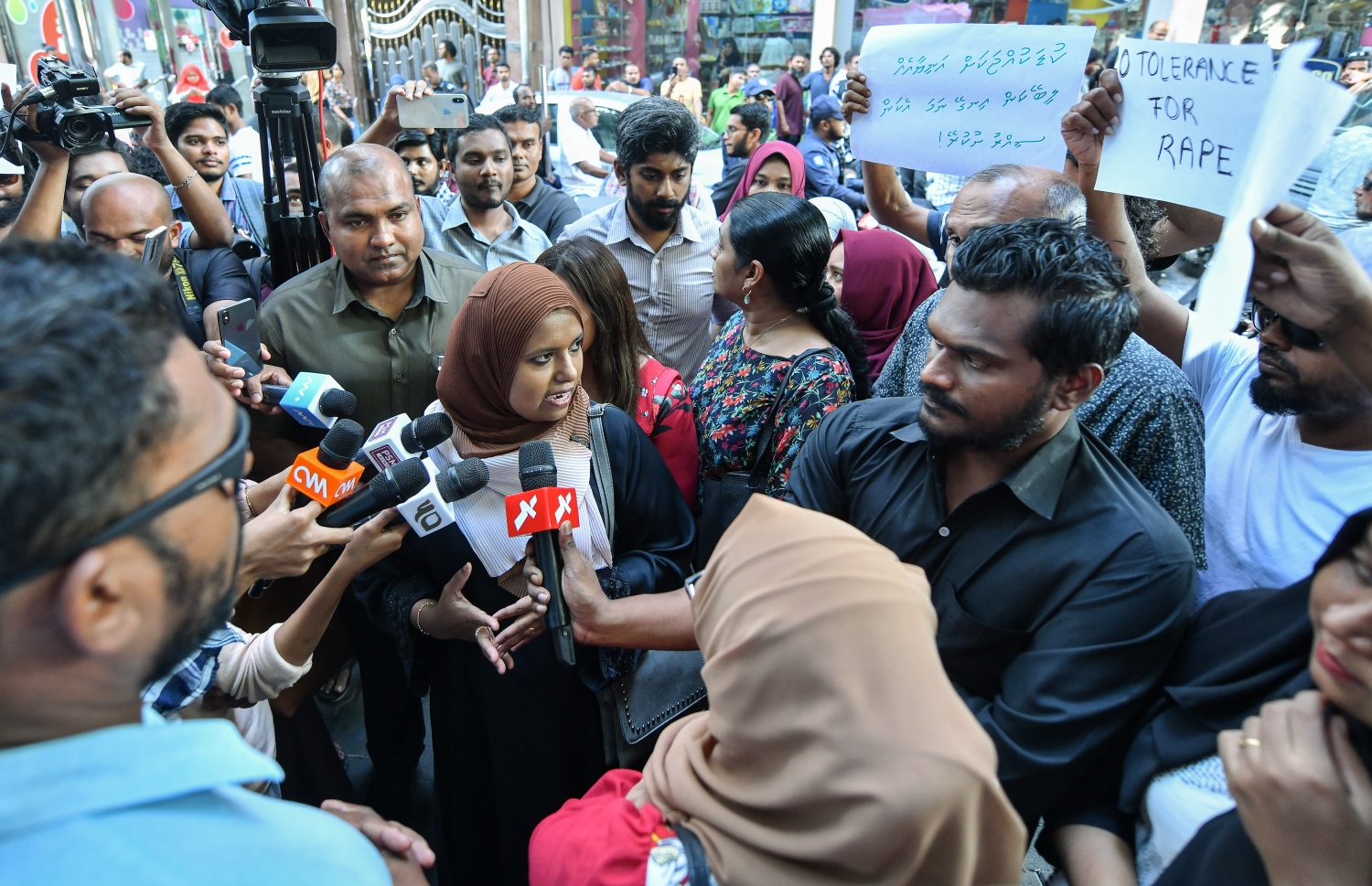
However, the hard-to-digest truth is that the 82-year-old is but one in a long line of paedophiles and child abusers that got off, despite the indisputable threats they pose.
Not two years have passed since we learned of another elderly man, then aged 75, who sexually abused four underage sisters on an island in Gaafu Dhaalu Atoll. The case against the man was annulled by the Thinadhoo Magistrate Court citing procedural violations, and the man was freed. Although the Prosecutor General’s Office appealed the case in August 2018, there has not been much progress since. Reportedly, the man was a powerful businessman on his island and the four sisters were not the only children he molested.
Similarly hard to forget, much less forgive, is President Ibrahim Mohamed Solih’s decision that same year to commute the prison sentence of Ibrahim Rasheed, commonly known as Hoara Ibbe, who was Undersecretary at the President’s Office during Maldivian Democratic Party (MDP)’s first administration under then-President Mohamed Nasheed. Ibrahim was convicted of statutory rape and sentenced to 10 years in 2013 over sexual misconduct with a minor, whom he later married. With MDP back in government, President Solih’s move to reduce Ibrahim’s sentence, not a month after the former assumed office, sparked vast criticism across the country. Although the president later expressed regret, Ibrahim continues to work within the ruling party.
Now, a week after the police made their first shocking announcement, the country has been rocked by a series of similar abuse cases that surfaced on the heels of Kanduhulhudhoo. Within a mere seven days, three children aged 3, 5 and 12 were reported to have been sexually abused by men aged 73, 56 and 80 respectively, while the gender ministry revealed they were also looking into the rape and impregnation of a 15-year-old. Joining this ghastly list is the gang rape of a 14-year-old girl by four men, one aged 18, two 19 and the fourth 21. The suspects in the first three cases and the gang rape have been arrested, along with an officer of Maldivian National Defence Force (MNDF) on accusations of raping and blackmailing a minor.
Under fire and increasing pressure from the people over these reports, the state has also picked up its movements; JSC initiated talks to expedite pending child sexual abuse cases, while the Cabinet convened on January 21 to discuss more stringent measures against perpetrators and improve multi-agency cooperation. On January 23, Department of Judicial Administration (DJA) ordered the courts to conclude all cases involving sexual abuse of children within six months of submission.
However, despite the government springing into action in the face of public ire - an old, worn-out tactic for the jaded Maldivian - and President Solih’s reassurances of his zero-tolerance policy to child abuse, we are still faced with the disquieting question:
How many more of these paedophiles and child abusers will walk free, at the end of the day?
From the abusers apprehended this past week to those that came on the radar before, such as the infamous 26-year-old man who “married” and impregnated his 13-year-old “bride”, what guarantee is there that these offenders will not be let loose, to prey on children again?
It has been little more than a decade since Maldives criminalised paedophilia, a battle that the people of this country fought for with years of campaigns and demonstrations led by the humanitarian group Native Operation on Rights (NOOR). However, the negligence of authorities and the seeming impunity of paedophiles cast gloomy shadows of doubt on the present and future. The National Bureau of Statistics show fluctuations in the number of child sexual abuse cases reported between 2009 and 2018, with 133 cases reported in 2009, 67 in 2010, 87 in 2011, 295 in 2012, 44 in 2013, 300 in 2014, 98 in 2015, 342 in 2016, 418 in 2017, and 358 cases in 2018 - an endless oscillation between ‘getting better’ to ‘growing worse’ that leads one to ask, have we truly made progress since that hard-won battle?
Driving another nail into the state’s coffin of failures is the discrepancies, caught by eagle-eyed vigilantes, in the child sex offenders registry, which was launched in 2015. When confronted, the gender ministry simply stated that the registry was not regularly updated as the relevant institutions, through which offenders’ information are sourced, have not been providing data.
Even more concerning is the state’s lack of action in reasserting the constitutional stand regarding certain debates within some circles of the public sphere on “acceptable” ages for victims. Where a legal age is defined by law, which explicitly states that minors cannot validly give consent, there is no possibility of “acceptable” sexual contact, regardless of whether the child is six or sixteen. However, despite representatives of the ruling coalition partaking in such discussions and allowing such harmful interpretations, the government is yet to rebuke them with their “zero tolerance” policy.
As the authorities scramble in vain to cover their let-downs and ramble about the “need to improve the system”, the fact remains that many a case fizzle out without justice being served, while dangerous predators slip back into society, to whom innocent children fall prey, scarring for life the little ones most deserving of our protection. With faith lost in the government and dwindling trust that coming forward with abuse claims would bring anything but harm and censure upon their children, most cases of child sexual abuse go unreported, without a doubt.
For the traumatised victims who may never recover their childhoods, and the heartsick parents who hate their own helplessness - surely the least that a country, which has failed them, owes is bringing the perpetrators to justice, locked away from society
